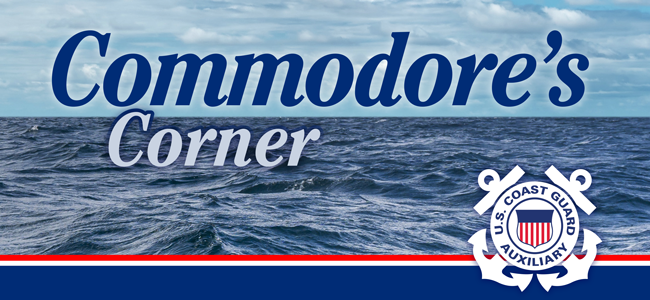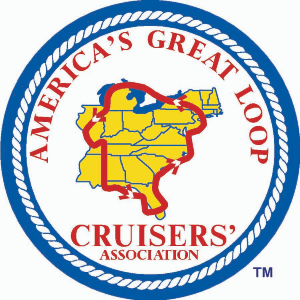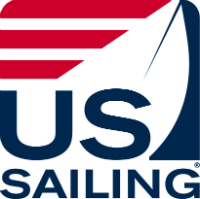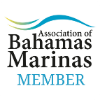
Unlike any other law enforcement arm, the U.S. Coast Guard (USCG) may board your boat at their discretion — they need no search warrant, no provocation, and no reason other than ensuring your boat is in full compliance with all applicable federal laws and regulations.
Do you know what do you do and say (other than maybe "Yikes!") if you see a USCG vessel in the vicinity and hear their voice on VHF channel 16 (or across the water) hailing your vessel and ordering you to bring your boat to a full stop?
You have been stopped by highly trained federal officers who will soon impress you with their professionalism. Before they even step off their vessel onto yours, the very first question they will ask you is, "Without reaching for them or touching them, do you have any weapons on board?" Subtly but powerfully, the tone is set: "I am polite. I am professional. And I mean business." Let's assume (and hope) that the answer to that question is "no" since an affirmative answer sets up a scenario outside the scope of this article.
Of note to boaters in the First Coast Guard District, which is us, the Coast Guard has a new program called the Responsible Boater program, which can make your time on the water much more pleasant – and safer. Read on!

Once your boat is boarded, the officers will be seeking compliance with regulations, starting with those applicable to all boat sizes:
- Your actual registration needs to be aboard and current. If you just have a copy, that's a problem, but if you have no registration, you have a much bigger problem.
- The Hull Identification Number needs to be the same on your registration and on your boat (embossed into the transom, low on the starboard side). If they don't match, you've got a lot of explaining to do.
- The registration numbers on the hull must be at least three inches high, appear as a contrasting color to your hull, and be the most forward of any numbering or lettering on the boat.
- If you have a Marine Sanitation Device (aka head or toilet), it must conform to regulations. As Long Island is a "No Discharge Zone," an over-board, through-hull holding tank must be in the locked/closed position and the key must under the control of the captain (no exceptions unless it can be seized closed or the handle can be removed in the closed position).
Other applicable laws and regulations are dictated by the size of your vessel:
- Is there at least one readily available life jacket in good working order for every person aboard? To be readily available, the jackets must be out of the wrapper and not buried under other gear or in a cupboard (think of your children or grandchildren having to put them on in hurry).
- The number of fire extinguishers depends on boat size, but all must be in working order.
- The amount of required flares varies by boat size, but all must be unexpired.
Now that sounds like a lot and it is – and it should be. And the list gets longer as the boat size increases. However, if you already have a valid Vessel Safety Check sticker on your windshield, you are eligible for an "Abbreviated Boarding."
An abbreviated boarding means that the Coast Guard will check for appropriate life-jackets for all aboard, that you have a sound-producing device, flares, registration and fire extinguisher (if required for the vessel of your size) aboard. That's it.
After the vessel is checked for compliance, there are three outcomes. The first (and best) results in receipt of a Report of Boarding marked "No Violations." You are likely good to go for the season because, if the USCG comes alongside again and you show them your clean boarding report, they will likely pass on.
Your Report of Boarding could be marked "Written Warning" due to some violation that has not risen to an actionable level. However, if the officer returns to the station and finds that you were already given a warning for the same issue, the notice becomes a violation.
A "Notice of Violation" may be issued on the boat, resulting in one of two general outcomes. If the boarding officer believes that the nature of the violation is inherently unsafe (some aspect of your boat may lead to serious injury or death to you, your crew and passengers, or other boaters), you will be directed to follow the Coast Guard vessel back to the dock. If the violation is benign enough to allow your voyage to continue, it takes on the aspect of a driving violation. Outside the new Responsible Boater program, the notice is mailed to the USCG hearing office where the boarding report will be reviewed by a case officer who issues fines, further letters of violations, or takes other actions. You will be notified by mail and be given an opportunity to appeal.
However, under the new Responsible Boater program, the boarding officer will tell you to contact us, get the violation fixed and recorded as such on the Vessel Safety Check form (that the Vessel Examiner will give you), mail them both in (Report of Boarding and VSC form) and, very likely, the Hearing Officer will note that and no fine will be levied. Fines can run high so this is free insurance!
Of course, if a search of the vessel and the persons aboard turns up anything deemed illegal, the USCG will take appropriate and immediate action.
So, how do you get a (free!) Vessel Safety Check? Captains can avail themselves of free Vessel Safety Checks provided by the U.S. Coast Guard Auxiliary and the U.S. Power Squadrons (http://www.safetyseal.net/GetVSC/).
Remember – a check is not an enforcement event — if your boat fails, you get a report that details the deficiency and the inspector's phone number. He or she will tell you, "When you have this addressed, call me. I will come down and re-run the inspection." This results in a Vessel Safety Check sticker of compliance being affixed to your windshield. Once there, you are considered a Responsible Boater, with all attendant benefits to you, your crew, your vessel and the USCG.
If you have any questions on this column or are interested in being part of the U.S. Coast Guard forces to email him at JoinUSCGAux@aol.com or go direct to http://www.d1south.org/StaffPages/DSO-HR.php.












